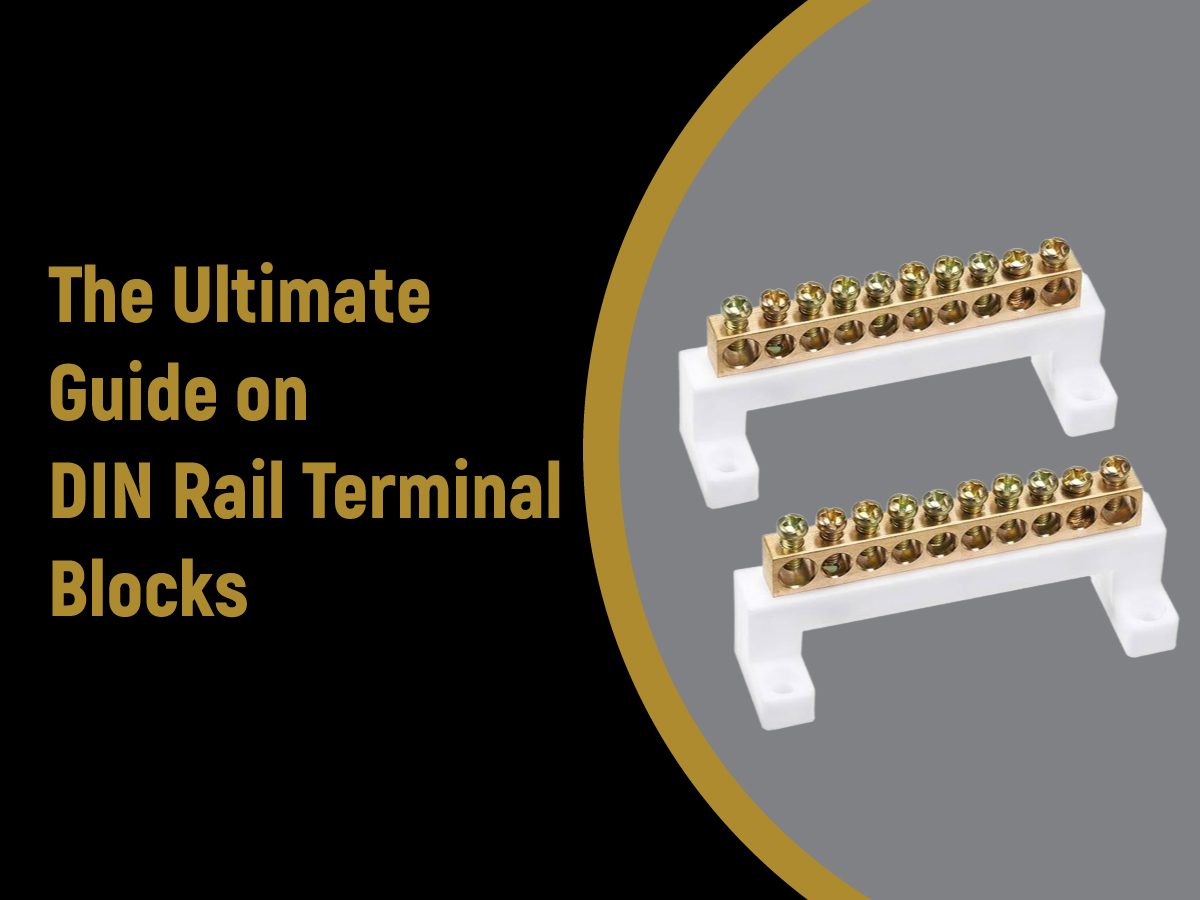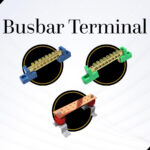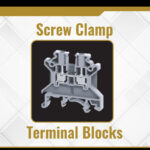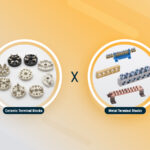The Ultimate Guide on DIN Rail Terminal Blocks

DIN Rail Metal Terminal Blocks are essential components in electrical installations, providing a modular and organized solution for connecting and terminating conductors. In this guide, we will cover the definition, types, advantages, applications, and key considerations for selecting DIN Rail Terminal Blocks.
Understanding DIN Rail Metal Terminal Blocks
DIN Rail Metal Terminal Blocks are a type of electrical connector that is designed to be mounted on standard DIN rails. These blocks serve as a convenient solution for connecting wires in various industrial and commercial electrical applications.
Types of DIN Rail Terminal Blocks
Feed-Through Terminal Blocks:
Designed for straightforward routing of wires through the block without any interruption. These are basic terminal blocks used for connecting and passing through electrical signals. They have two separate terminals for incoming and outgoing wires.
Ground Terminal Blocks:
Designed specifically for grounding applications, these terminal blocks provide a secure connection for grounding wires to prevent electrical shock and ensure safety.
Disconnect Terminal Blocks:
These terminal blocks have a disconnect feature that allows for the isolation of a circuit without disconnecting the wiring. This is useful during maintenance or troubleshooting.
Fuse Terminal Blocks:
Equipped with fuse holders, these terminal blocks allow the integration of fuses into the electrical circuit to protect against overcurrent and short circuits.
Multi-Level Terminal Blocks:
Designed to accommodate multiple conductors in a single terminal block, these are useful when dealing with complex wiring configurations.
YOU MAY ALSO LIKE: Is it worth buying Wholesale Terminal Blocks?
Advantages of DIN Rail Terminal Blocks
Modularity:
DIN Rail Terminal Blocks are modular in design, allowing for easy customization and expansion of electrical systems without the need for extensive rewiring.
Space Efficiency:
Mounted on DIN rails, these terminal blocks optimize space within electrical panels and control cabinets, promoting a neat and organized layout.
Ease of Installation:
This type of terminal block facilitates easy, quick, reliable, secure, and straightforward installation.
Versatility:
These terminal blocks come in diverse types to accommodate different wiring needs. This versatility makes them suitable for a wide range of applications in industrial settings.
Durability:
Manufactured from durable materials, providing resistance to environmental factors, vibrations, and temperature fluctuations. This durability contributes to the reliability of the electrical connections.
Applications of DIN Rail Terminal Blocks
Industrial Control Panels:
Commonly used in the construction of control panels for industrial machinery, manufacturing equipment, and process control systems. They provide organized solution for connecting wires and components.
Power Distribution:
DIN Rail terminal blocks are employed in electrical distribution boards to organize and connect the wiring for power distribution within buildings and industrial facilities. They are commonly used for both lighting and power circuits.
Building Automation:
Terminal blocks on DIN Rails are used to manage the wiring for HVAC (Heating, Ventilation, and Air Conditioning) systems, lighting controls, security systems, and other building management systems.
Renewable Energy Systems:
Solar power and wind energy systems often utilize DIN rail terminal blocks to connect and organize the wiring for inverters, charge controllers, and other components in both residential and industrial installations.
Machine Building:
Manufacturers of machinery and equipment use DIN rail terminal blocks to organize and connect electrical components within machines. The modular nature of these terminal blocks allows for flexibility in machine design and assembly.
Telecommunication Systems:
DIN rail terminal blocks find applications in telecommunication systems for connecting and managing wiring in control panels, distribution frames, and network equipment.
Traffic Control Systems:
Traffic lights, signals, and control systems often use DIN rail terminal blocks to organize and connect the wiring for effective traffic management.
YOU MAY ALSO LIKE: How to Choose the Reliable Terminal Block Supplier?
Selection Considerations for DIN Rail Terminal Blocks
Voltage and Current Ratings:
Choose terminal blocks that match the voltage and current requirements of the electrical system to ensure safe and efficient operation.
Wire Size Compatibility:
Ensure that the terminal blocks are suitable for the wire sizes used in the application, promoting a secure and reliable connection.
Environmental Factors:
Consider factors such as temperature and humidity to select terminal blocks that can withstand the operating conditions of the installation environment.
Conclusion
DIN Rail Terminal Blocks are indispensable components in electrical installations, offering a versatile and efficient solution for connecting and organizing conductors. Understanding their types, construction, applications, and selection considerations is crucial for maximizing the benefits of these terminal blocks in diverse industrial and commercial electrical applications.
As a leading terminal block manufacturer and exporter, Teron Metal Components provides comprehensive solutions for diverse types of terminal blocks. Whether you need standard or complex terminal blocks, our experienced and dedicated team ensures to meet all your needs. We are well-known in the global marketplace for our customization service and for providing cost-effective terminal block solutions. To know more about our services and products, you can contact us at sales@teronmetalcomponents.com or request a quick quote.



